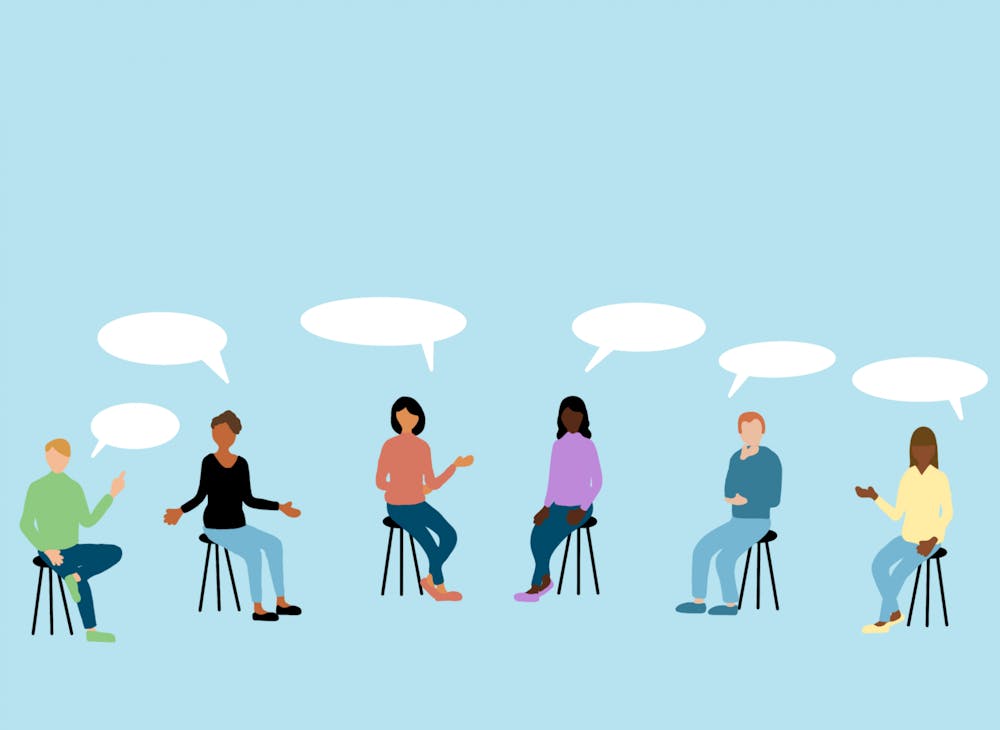Life at the University is loud and vibrant — even in the worst of ways. From the man who protests with signs on the Corner to the outspoken student body in classrooms, discussion forums, social media or even within dorms, one thing is clear. Silence is not a part of the University’s culture.
I learned this early in my University experience. During my first year, a white student told the class that immigrants were not welcome in this country, and that diversity was the root of our problems in the U.S. He was not silenced then. A girl countered him, stating how valuable diversity is in our country. She was not silenced either. I have experienced people being cyberbullied for calling out racism from their professors. I have seen advocates for equality regularly harassed by authority figures. And I have seen racists continue to hold these views despite the backlash — none of them censored themselves.
When I read Emma Camp’s article in the New York Times, I was confused. In the piece, all of the students involved were very outspoken, but their opinions were dissented by their peers — isn’t that the very nature of debate? Is it not just a factor of life to argue and to be argued against, to have different opinions than one another? I agree with Camp — Captain Marvel is not a feminist movie — but it is not silencing for someone to say they think it is.
For someone to talk about silencing on a national platform seems almost comical to me. Students have had to sit through being told how eugenics “should be allowed as long as it does not harm or infringe others rights.” Students have had to sit through being told that women are treated better than men, and that white rappers are oppressed in rap spaces due to their race. Students have had to sit through unprovoked conversations regarding their reproductive systems and be harassed for supporting Planned Parenthood. I have seen students at this University get shamed at the highest levels — called out by national news networks and have journalists writing pieces about the invalidity of their opinions. Not once have I experienced self-censorship amongst these students.
A Muslim woman at our University was threatened with the use of a razor blade for voicing her opinions, but this was not considered silencing. However, once the punishment for speaking out extended to all Lawn room residents — including her white peers — a conversation about free speech was brought into the forefront. Another woman brought to the University’s attention the racist remarks that her professor had made, and again, the idea of free speech was used to avoid a possible sanction that was meant to be imposed upon this very professor. It is interesting to see that these stories did not come up in a self-proclaimed pro-feminist article. The Lawn room controversy was mentioned, but the woman who that policy was meant to silence was not. A conversation about online harassment was brought up, but people who were harassed under the orders of a national organization were not mentioned. This begs the question — who exactly is silenced, and what does “self-censorship” mean?
The idea of “feeling” like you have to keep quiet is another frustrating aspect of Camp’s article. There is no direct silencing — no one is told to not speak their mind. Instead, there seems to be an overall feeling of unwelcomeness. For most non-white students, this is an air that surrounds the University. Only a few years ago, spaces meant for minorities — such as the Multicultural Student Center and the LGBTQ+ Center — were kept in the basement of Newcomb Hall. As a new student, I felt cast aside, disconnected and unwelcome by the University itself — especially in more traditional University spaces. Students who have fought hard to create a safe space for themselves also feel unwelcome — yet they still continue to speak out for the equality that we all deserve.
The most bothersome part of Camp’s argument is the idea that intellectual debate as a whole is being repressed — that students at the University are unable to hold conversations with each other due to fear of being canceled on Twitter. I am a self-proclaimed leftist, yet I used to regularly debate my lab partner, who himself was a self-proclaimed conservative. Never did either of us feel like we had to self-censor. Even in classes, I hear people with varying political opinions all engage in deep intellectual discussion. However, when these discussions invalidate people’s lived experience and identities, it crosses a line and moves from being intellectual to ignorant. You cannot treat someone's life as an object to be debated, something politely discussed before agreeing to disagree. For some, these experiences are a daily occurrence that affect every aspect of their lives — not just something printed out in an ethics case study.
In a way, this is my turn in the debate. I am unsure how to take Camp’s piece seriously when I do not see the real effects of self-censoring on Grounds, both previously and now. Though Camp may feel as though she must stay silent, she has every opportunity to speak as a white woman at the University — it is her choice whether or not to use it.
Ria Sardesai is a fourth-year in the College of Arts and Sciences. They can be reached at opinion@cavalierdaily.com.
The opinions expressed in this column are not necessarily those of The Cavalier Daily. Columns represent the views of the authors alone.







